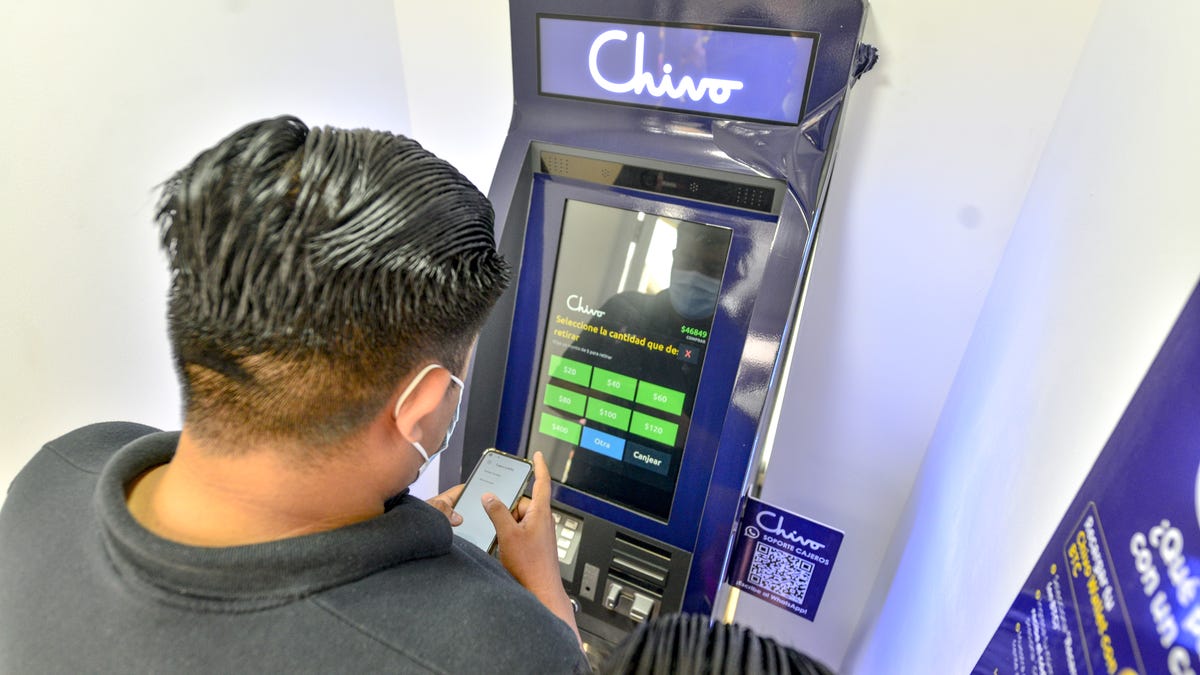Bitcoin falls as El Salvador’s cryptocurrency gamble stumbles
Bitcoin became legal tender in El Salvador on Tuesday, but demand overwhelmed the government-developed digital wallet.

Number go up, number go down. After climbing to just under $53,000 on Monday, Bitcoin fell precipitously on Tuesday. The price briefly dipped to just over $43,000, but at time of writing stands at $46,925. Other currencies like Ethereum and Dogecoin saw similar falls.
Cryptocurrencies are decentralised and notoriously volatile, so it's often difficult to precisely pinpoint the cause of such sharp price movements. In this case, however, it appears to be tied to El Salvador, where Bitcoin officially became legal tender on Tuesday.
El Salvador's government created a digital wallet for its 6.4 million citizens to use, which would come with $30-worth of Bitcoin preloaded. (That's about 0.0007 Bitcoin.) At first, the wallet wasn't available through Apple and Huawei app stores. After President Nayib Bukele pressed all online app ecosystems to add the Chivo app, the digital wallet was overwhelmed with traffic and had to briefly be taken offline.
Bukele, who at 40 years old is an unusually young world leader, went on to joke about the Bitcoin price drop on Twitter. "Buying the dip," he tweeted with a winking Emoji, a quip commonly made by cryptocurrency traders exposed to sharp price drops. He said El Salvador bought 150 Bitcoin this morning, bringing its total to 550. (At current price, that's $25.7 million-worth.)
Many El Salvadorians shared videos of Bitcoin being accepted at Starbucks, McDonald's and other retailers -- videos Bukele gleefully retweeted. Bitcoin enthusiasts around the globe pledged to buy $30 worth of the cryptocurrency on Tuesday, dubbed "Bitcoin Day," in support of Bukele.
The adoption of Bitcoin has been poorly received among many other citizens, however. Over 1,000 gathered in San Salvador to protest the move, which they say won't help the country's poorest residents. "This is a currency that's not going to work for pupusa vendors, bus drivers or shopkeepers," a resident told Reuters.
President Bukele, whose political party is literally called "New Ideas," hopes that the mass adoption of Bitcoin will spur forward-thinking foreign investment in the country, and also lower the cost of remittance payments, which currently make up 24% of El Salvador's GDP, according to World Bank data.
Global financial institutions have warned El Salvador against the move. "Adoption of bitcoin as legal tender raises a number of macroeconomic, financial and legal issues that require very careful analysis," said a spokesman for the International Monetary Fund in June. Meanwhile, a World Bank spokesperson told the Washington Post in June: "While the government did approach us for assistance on Bitcoin, this is not something the World Bank can support given the environmental and transparency shortcomings."
Bukele, sometimes called Latin America's first millennial president, has rebuffed the criticisms. When influential economist Steve Hanke called it a "crackpot" plan, Bukele replied: "Who is this Boomer?"
"We should break the paradigms of the past," Bukele tweeted just prior to the law going into effect. "El Salvador has the right to advance toward the First World."

